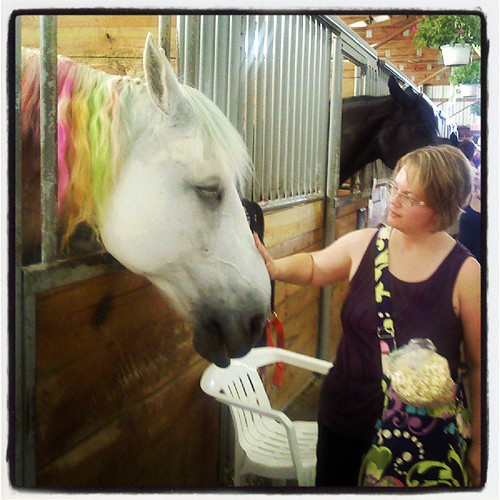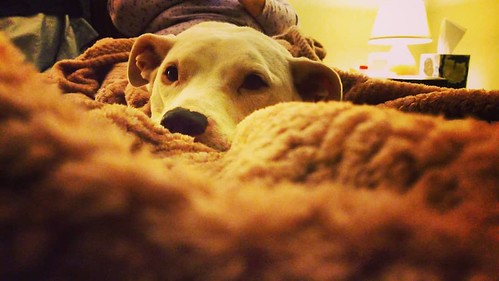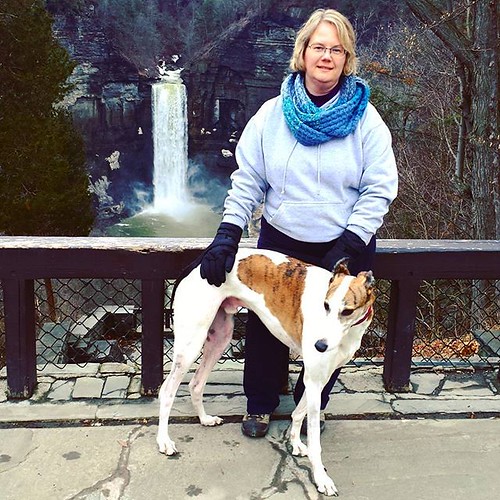
Today is The Wife's birthday! Onward and upward, as always!
A brief slideshow of photos (some of which are already on this post, but I like them and it's my blog, so there they are again!) follows. The song is "Live Forever" by Drew Holcomb and the Neighbors, a wonderful band.

And now, my annual list of memories and things from our years together. (New items on the list are appended to Number 97, alphabetically. I do this because I'm too lazy to renumber all the stuff after that one every year.)
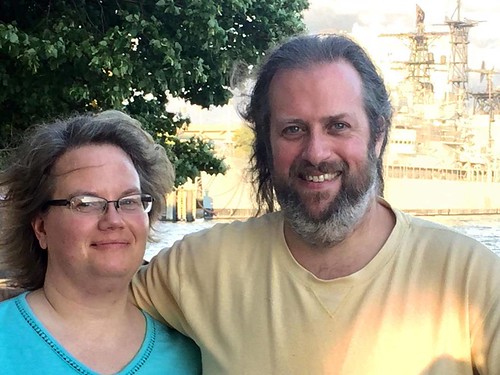

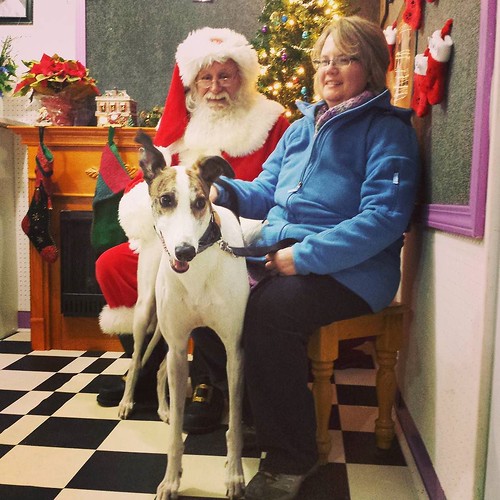
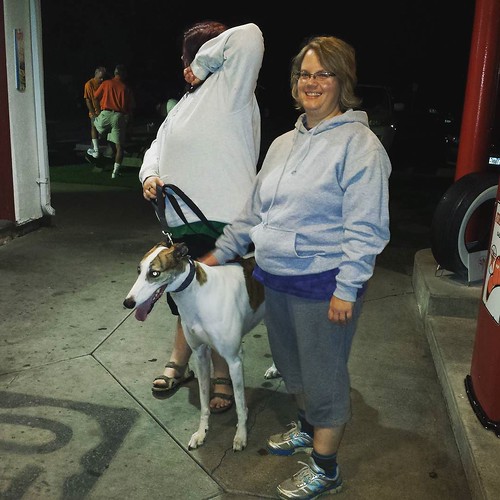
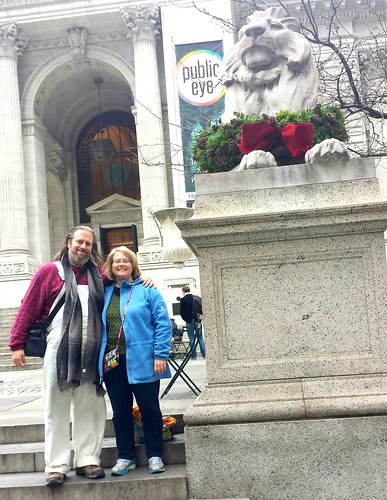
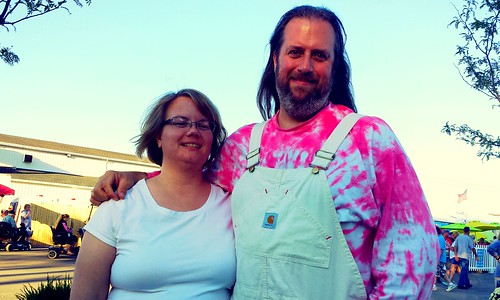
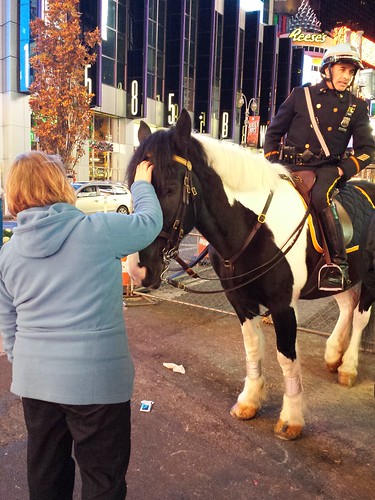


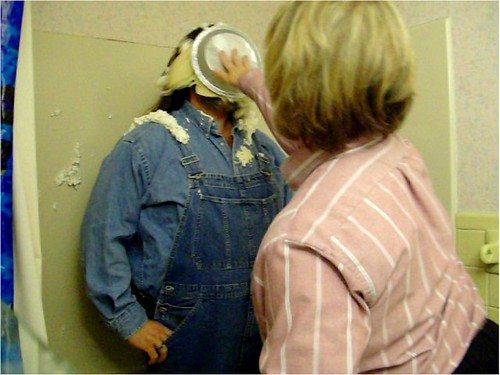
1. Her hand fits perfectly into mine, as though our hands were fit for each other.
1a. That said, there's a good chance that she prefers the dog to me.
2. The first time she saw Star Wars was with me. And ET.
2a. The first time I saw Cinderella and Sleeping Beauty were with her.
3. She used to keep an aquarium before a bunch of moves made us give up the fish. Maybe we'll do that again someday. But when we started dating, she had two fish, named Ken and Wanda, named after two memorable characters from A Fish Called Wanda. When Ken went belly-up, she called a friend and solemnly informed her, "K-k-k-ken d-d-d-died." (One of the movie's running gags is Ken's stuttering.)
4. I don't remember exactly when it happened, but I've converted her from someone who hated coffee into a regular coffee drinker.
5. For reasons passing understanding, she has always found Erik Estrada attractive. She and I used to have arguments over who could best the other in a fight: Agent Mulder from The X-Files or Ponch from Chips. (I think Mulder would have blinded Ponch with the beam from those giant blue-beamed flashlights he and Scully were always toting, and then beaten him into submission with his eternally-able-to-get-a-signal cell phone.)
6. One of the first things we cooked together was Spanish rice, which is to this day a comfort dish of ours. The first time we made it together was also the first time she'd ever cooked with actual bulb garlic, as opposed to garlic powder. The recipe called for a clove, but she thought the entire head was a clove, so into the rice the entire head of garlic went. That was the best Spanish rice ever.
7. A few years ago she baked a Bundt cake for The Daughter's birthday, but the damned thing stuck in the pan, resulting not in a ring but a mound. So she just mounded it up, glopped the frosting right over the top, and called it a "Volcano Cake". Now, every year at her birthday, The Daughter says, "Remember the Volcano Cake?"
8. Our first date was to see Edward Scissorhands. So, Johnny Depp's been there since the beginning, from Edward all the way to Captain Jack Sparrow and beyond.
9. We used to go out for chicken wings and beer every Thursday night. We didn't even miss our Thursday night wing night when The Daughter was born: her birth was on a Saturday, and we left the hospital on Tuesday, so at the tender age of five days, The Daughter entered a bar for the first time. This may have made us bad parents, but I don't think so. A girl's got to know how to handle herself in a bar, right?
9a. She's not a huge fan of when I post photos of her sleeping.
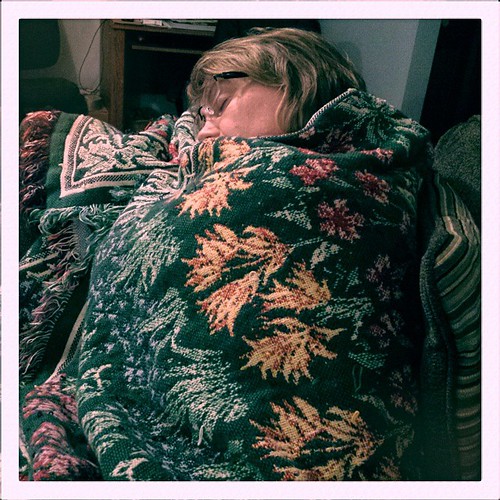
10. She insisted on breastfeeding both The Daughter and Little Quinn, which in both cases required lots of pumping. Especially in Little Quinn's case, since he was never able to eat by mouth. Every drop of breastmilk that entered his body went in via the G-tube, so for as long as her production held up, she pumped six times a day.
11. I'll probably never completely understand how much of herself she sacrificed in fourteen months to keep Little Quinn alive and progressing. It seems, in retrospect, that every free day she had was given to him.
12. That same instinct in her kicked in again when Fiona was in danger. She didn't question the necessity or possibility of spending months flat on her back with her feet inclined, if that was what it took. If commitment was all that was needed, Fiona would be here today. (Of course, if commitment was all that was needed, Little Quinn would be here and Fiona wouldn't have happened.)
13. We used to associate certain teevee shows with the snack foods we'd eat while watching them. NYPDBlue was always chips-and-salsa. ER, when we still watched it, was often good ice cream. Now, good ice cream has been transposed to Grey's Anatomy.
14. "Our" first teevee show was LA Law.
15. Subsequent teevee shows of "ours" included ER, Mad About You, The Pretender, Profiler, CSI, Firefly, and more.
16. On our first Internet account, we set up our combined e-mail identity after the two main characers on The Pretender. We were "Jarod and Miss Parker". People familiar with the show wondered what that said about our relationship, since Jarod and Miss Parker aren't allies. In fact, Miss Parker was initially a villain but as the show went on her character became much more complex.
17. She started roller blading, got me hooked, and then promptly stopped roller blading. Now she prefers biking.
18. It was almost without warning that I met her parents for the first time. We started dating late February 1991; a couple of weeks later was spring break, for a week, so I came home to Buffalo. At the end of that week I tried calling her, only to learn from the old lady she was renting a room from that she wasn't home because of a death in her family. I remembered her saying something about a sick grandfather, and that's what turned out to have happened; her grandfather had passed away from Lou Gehrig's Disease. When I got back out to school, her entire family was there. So I met the future in-laws on the spot. Luckily, I seem to have made some kind of decent impression.
19. Our first long trip together was from Iowa to Idaho, to visit her family, a couple of weeks before school began in August of 1992. She had already graduated college, but I was in my senior year. While we were out there, the infamous Ruby Ridge Incident was taking place twenty miles down the road, so all week there were National Guard vehicles on the roads and helicopters overhead.
20. I am forever amazed at her ability to take some fabric and create a garment. This skill of hers looks like magic to me.
21. Her first pair of overalls were a gift from me. She thought the whole thing was goofy – maybe she still does! - but she wore them for years until at one point they became too small for her, and then a short while later they became too big for her. We didn't start wearing overalls together until we'd been dating for about a year.
22. Back in the 90s, on two different occasions, we picked out Persian kittens. Both were wonderful cats, both are gone now, and we miss them both dearly. The first was a beautiful tortoiseshell Persian named Jasmine; the second was a red Persian named Simba. Both died in the year preceding this blog's launch.
23. Adopting Lester and Julio was The Wife's idea. I'm still unsold on these two giant lummox goofballs.
24. The Wife also took The Daughter to adopt Comet, when The Daughter was only two.
25. Shortly after The Wife moved to Western New York to be near me, she adopted a cat from the shelter she named Lilac. That cat never really liked me all that much. Lilac died a few months after Little Quinn passed.
25a. She is directly responsible for all the animals with whom we currently live.
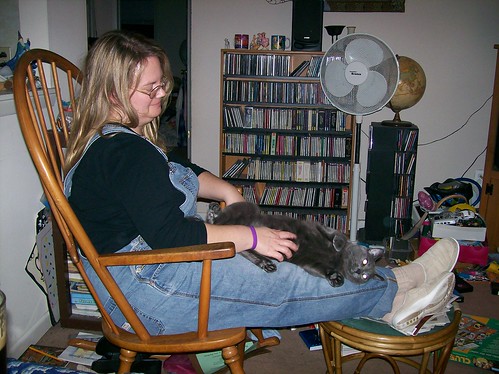
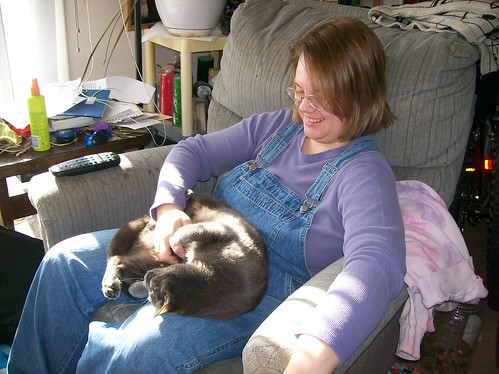
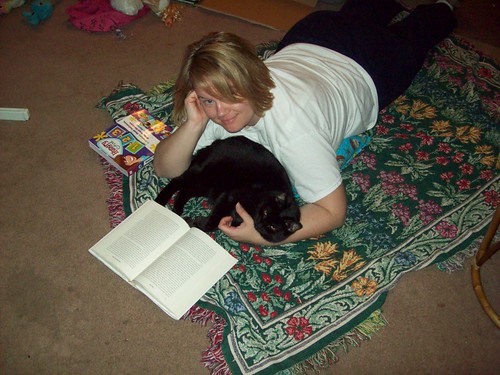




26. She loves to laugh, particularly at my expense. She is convinced I don't think she's funny, but that's just not the case.
27. Things with which she has a deft touch include: a pair of scissors, a needle and thread, a kitchen knife, the mixer, bread dough, a screwdriver, a lug wrench, and a shot glass.
28. It irritates her that The Daughter has inherited my tolerance for sunlight -- I tan, whereas The Wife burns.
29. The Wife likes to read, albeit not quite as much as I do. She always has a book going, and she reads every day.
30. She never used to use a bookmark, until I finally decided I was tired of watching her flip through a book looking for a passage that was familiar to her so she could find her place. I bought her a bookmark.
31. She loves nuts – except for walnuts and pecans, which I love. This makes it occasionally difficult find good brownies and similar items in bakeries, since many people default to putting pecans or walnuts in their brownies or other chocolate cookies.
32. When I first met her, she was a huge Anne Rice fan and read most of what Rice wrote until she decided that Rice's output wasn't interesting her much anymore. Since then she's read a lot of other authors, including a lot of unfamiliar names whose books I've plucked from the stacks of offerings at library book sales over the years. Interesting how obscure even the bestsellers of yesteryear eventually become, huh? Currently she really loves Gregory Maguire, the Wicked guy.
33. When we first met, she was a Washington Redskins fan. So of course, the first Super Bowl we were together was the one where the Redskins knocked the Bills on their collective arse. Oh well, at least she hated the Cowboys.
34. She prefers her KFC "extra crispy", where I'm an "Original Recipe" guy.
35. Movies that are particularly meaningful or nostalgic to us, in addition to Edward Scissorhands and Star Wars are Dances With Wolves, Titanic, The Lord of the Rings, Singin' in the Rain, and the James Bond movies.
36. For some reason we didn't take any pictures when we were on our honeymoon or when we were on our vacation to Disney a year later. I think we were between working cameras at those points...but lately I really wish we'd have addressed that at the time.
37. Things we did on our honeymoon to Cape Cod, Boston, and New Hampshire: road a boat out to sea to watch the whales; visited the New England Aquarium; ate dim sum in Boston's Chinatown; bought lots of kitchenware at an outlet strip (don't laugh, we still have some of that stuff); visited the Boston Science Museum. While doing two days in Boston we stayed at a hotel about forty miles out and road the train into town; on the second day, on the way back, we fell asleep on each other's shoulders.
38. Our first argument as a couple resulted from a common misunderstanding between people when one is from Iowa and one is just living in Iowa for a while. I told her we'd meet for dinner, so she showed up at noon and got annoyed because I wasn't there. Well, duh! I said "dinner", not "lunch". Except, remember, she's a native Iowan, which means instead of eating breakfast, lunch and dinner like most (ahem) normal folks, she ate breakfast, dinner and supper. Thankfully, I've converted her since then. Whew!
39. Our first wedding anniversary saw us spending a week at Walt Disney World. What a wonderful time that was! Even if she managed to rip her toenail out two days into the trip, thus requiring me to push her around in a wheelchair the whole time after that.
40. She had long hair when we started dating, and I had short hair. Now we've reversed that.
41. Before we started dating, I had a beard. When I became interested in her, I shaved it so I'd look better. Then, I learned that she likes facial hair. So I grew the beard back a while later.
42. Foods I've tried because of her: asparagus, squash, rhubarb, grapefruit, and more that I don't recall.
43. She loves George Carlin.
44. She bought me my first cell phone, and my second cell phone.
45. When we were at the Erie County Fair in 2001, she wandered off to look at the Bernina sewing machines. When I came by ten minutes or so later, she was in the process of buying a Bernina sewing machine. I didn't complain; I just stood there, kind of looking shell-shocked.
46. Leading up to our wedding, she rigidly adhered to the notion that the groom should not see the bride in her wedding dress until she comes round the corner to walk down the aisle. So I didn't see her until she came round the corner to walk down the aisle.
47. Starting a family was her idea. Not that I was against it; I figured we'd get there eventually. She just picked the "eventually".
48. She picked The Daughter's first name, so I got to pick her middle name.
48a. And now, this:

49. Since Thanksgiving Break at college was only a four day weekend, I didn't go home for T-giving my junior year; instead, I spent the weekend with her. We went to see her extended family out in Storm Lake, Iowa, which is on the other side of the state. Since she has family over there on both sides of the family, we ended up having two Thanksgiving dinners that day. Some part of me is still full from those two meals.
50. Iowa delicacies that The Wife and I share are pork tenderloin sandwiches and broasted chicken.
51. Some of our early dates were sufficiently cheap that we had to look for ATM machines that would dispense cash in five dollar denominations.
52. She bought Simba, the above-mentioned red Persian kitten, while we were on a shopping trip to Erie, PA. She fell in love with the kitten as soon as she saw him in the pet store; we then spent the rest of the day walking around the mall with me listening to her as she tried to talk herself out of buying him. (Persian kittens are pricey little buggers.) Finally, while we were at dinner at Red Lobster, she decided to pull the trigger.
53. Before Little Quinn, the most heartbroken I ever saw The Wife was the day we finally had to end Simba's life. His kidneys were in failure.
54. Great gifts she's bought me through the years: my current winter coat, a cupboard-full of drinking vessels of all types, candles, incense burners, the Star Wars original trilogy on DVD, my anniversary edition of The Lord of the Rings with paintings by Alan Lee, my star sapphire ring, my current wristwatch, and many more.
55. The first thing she ever gave me: a stuffed bear, around whose neck she tied a lavender ribbon. I think she doused it with perfume. I named that bear "Bertrand", after philosopher Bertrand Russell.
56. The first thing I bought her: a little two-inch high figurine of a laughing Buddha. I think this confused her a bit.
57. Despite my best efforts for a while, she's never much warmed to baseball. That used to bother me, but these days that doesn't bug me much at all. I'm pretty cool to baseball myself now.
58. For a few years we went to Cedar Point each fall. We haven't been there in a long time, but I always found being there with her in the fall, in the cool air, pretty romantic. I loved riding the Giant Wheel after dark, sitting up there with her hand in mine, looking out over Lake Erie.
59. At Cedar Point, she decided that she liked this one coaster that does loops, so I stayed on the ground while she rode it. I'm terrified of those things.
60. Why don't we play mini golf more often? We both love mini golf. The Daughter loves mini golf. What gives?
61. One day in 1996, we were eating lunch in Buffalo when we had "The Discussion". Any guy who's ever been dating the same girl for a period of time measurable in years will know what "The Discussion" is. So I agreed, it was time for us to take the "next step". Later on, while she was having her eyes examined at LensCrafters, I bopped over to Penney's to buy her a ring. I chose a nice emerald one that looked really pretty. Sadly, they didn't have it in her size, so they had to order it, which would take three weeks. So I figured, OK, I'll get the ring in three weeks and make this thing official. Yay, Me!
62. The next day, she proposed to me.
63. Three weeks later I showed up to get the ring. They had it, but they couldn't find the paperwork, so some poor guy at the pickup counter at Penney's spent his entire lunch hour trying to find the paperwork so I could give my already-fiancee her engagement ring.
64. I don't remember exactly when we picked out her wedding rings, but we each have an Irish wedding band, and each ring is set with the other person's birthstone. So my ring is set with four amethysts, which is her birthstone; hers is set with four sapphires, which is mine.
65. For years I wore my ring incorrectly. Apparently there's one way to wear an Irish wedding band that signifies being married, and another that signifies being single. I was wearing mine the "single" way. I was alerted to this by a guy I worked with at The Store; he said, "Yeah, you're telling all the women that you're available." I replied, "Yeah, and I'm beating them off with a stick."
66. On our honeymoon, it was important to her that she at least get to dip her toes in the Atlantic Ocean. So she did. The water was very cold, though.
66a. She replicated this moment years later when we took a trip to the Jersey Shore.
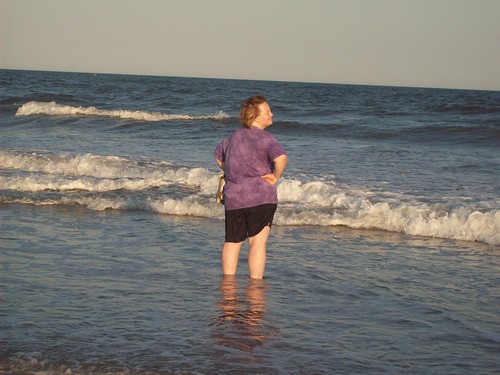
66b. We returned two years later.
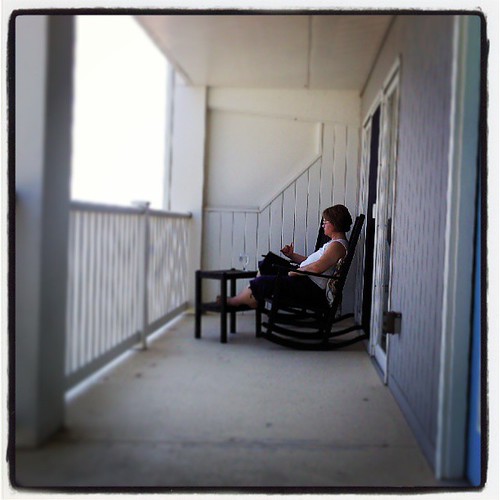
67. It always bugged her mother that she saw Niagara Falls before her mother did. Later we took her mother to Niagara when she was out for a visit.
68. During the summer of 1991, when I was at home and she was still in Iowa, she came to spend a week with me. I took her to Buffalo and to Toronto, on the way to which we stopped to see Niagara Falls for her first time.
69. She was really confused the first time a Japanese tourist asked her to take his picture in front of the Falls.
70. At the time our beer of choice was Labatt's. It's pronounced "la-BATS", but we had a family friend at the time who liked to say it "LAB-uhts", which is how I said it at college just for fun and habit. So when she visited me that summer, we went to the bar where this friend hung out, and he was so impressed when she ordered a "LAB-uhts".
71. Our favorite mixed drink in college was the sloe gin fizz. A few years ago I tried making these again, discovering that her tastes had changed and she now found them sickeningly sweet. I like them still, but yeah, they're sugary. (And pink. When I told a friend at work who knows everything about liquor that I'd bought some sloe gin, he laughed and said, "Oh good! Now you can make pink drinks!")
72. She taught me the right way to do laundry.
73. I taught her the right way to crack open crab legs so as to not mangle the meat.
74. Our first major mistake of parenting was taking The Daughter to a fireworks display on the Fourth of July in 1999. The Daughter was all of fifteen days old. This was the big display in Lakewood, NY, which is right on the banks of Lake Chautauqua. The Daughter did not respond well to the fireworks detonating right over our heads; the sounds were bad and for years afterwards The Daughter was very scared of loud sounds.
75. We always say that we should go camping. We never actually do go camping. We need to do more camping.
76. Once for dinner I made some frozen cheese ravioli with sauce, a favorite meal of ours that we hadn't had in a long time. She said that she was looking forward to "eating some cheesy goodness". Unfortunately, the raviolis were a bit on the old and tough side, and the cheese never got nice and melty, so after the meal, she commented, "That wasn't really cheesy goodness."
77. She likes eggs over-easy. I'm not a big fan of those, but I try to make them for her when she's getting over being sick.
78. She makes fun of my over-reliance on boxed mixes in the kitchen.
78a. I'm much better about this now. Her main kitchen complaint about me is that I make way too big a mess when I cook.
79. In 1993, when Cheers aired its final episode, she bought pizza for my roommate and I.
80. She only swears when she's really annoyed.
81. She is not happy that her nine-year-old, fourth-grade daughter is now the same shoe size as she is.
82. A while back she had her hair colored a brighter shade of blond than is her natural color. It was awesome.
83. Before that she experimented with red. I've tried talking her into doing that again, but no dice.
84. When my aunt met her the night before our wedding, she made a comment to the effect that I was to be commended for adding blond hair and blue eyes to our gene pool.
85. The Daughter has blond hair and blue eyes. So did Little Quinn.
86. I'm not sure there's a variety of seafood she dislikes.
87. I love the way she looks when she's just come home from work and changed into her PJ's.
88. Adopting Lester and Julio was her idea, but she claims the upper hand on that anyway because she was helping out my mother.
89. For some reason, The Daughter and I like to bring up at the dinner table the fact that The Wife, as a kid, had to help the family out on Chicken Butchering Day. I don't know why.
90. She thinks Orlando Bloom is really attractive. I don't see it, myself, but you can't argue these things.
91. For my birthday in 1992 she drove me to Dyersville, IA so I could see the Field of Dreams.
92. If I want to spoil her, all I have to do is buy her blush wine, cashews, olives and chocolate. Cake helps, too.
93. She spoils me by looking the other way when I go to Borders; by making me waffles or French toast or Spanish rice; by cleaning the kitchen after I've messed it up; by indulging my love of pie; and a thousand other ways.
94. I'm always game for a pie in the face, but I'm pretty sure nobody pies me like she does. Or better.
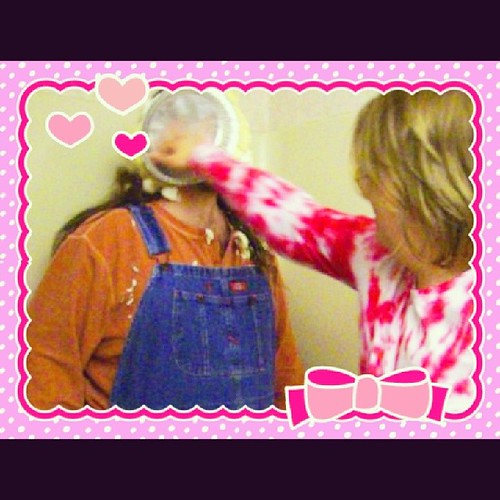
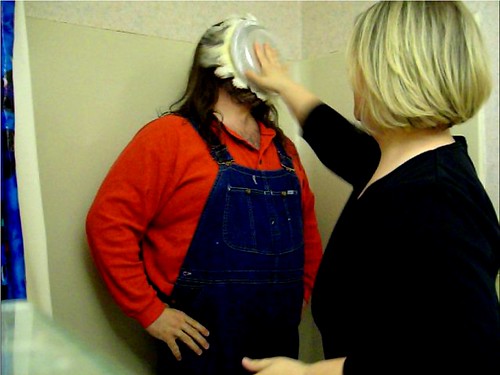
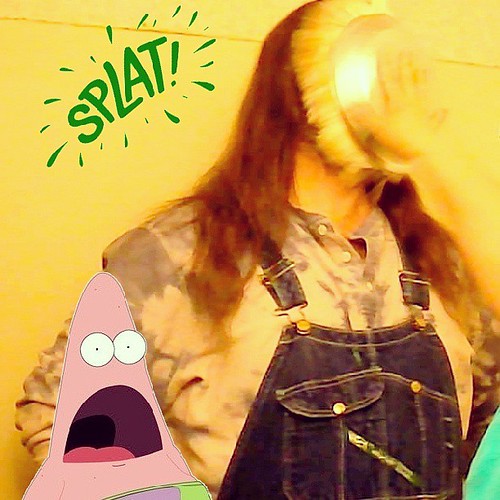
95. I know I've found the perfect girl for me when she describes our Thanksgiving in 2006 as being perfect because, after dinner, we went to see Casino Royale. In her words: "We had a big turkey dinner, and then we watched James Bond kill people."
96. We both love laughing at David Caruso on CSI Miami.
96a. Sadly, CSI Miami is long gone, but now we thrill to the adventures of Team Machine on Person of Interest, of Castle and Beckett on Castle, and we enjoy Alton Brown's delicious brand of pure evil on Cutthroat Kitchen.
97. One time when we were working out at the Y, and she got so engrossed in what she was doing that when I approached her, she didn't recognize me at first.
97a. She loves lilacs.

97b. She loves sushi, so for a while our Saturday night dinner tradition was I'd buy her sushi at The Store, and she'd eat that while I had a "charcuterie" plate of my own. (I think we can all agree that "charcuterie" is the fancy-schmancy word for "cheese and crackers," yes? Kind of like how "grits" turned into "polenta" at some point and started commanding $15 a plate?) But she'd eye my cheese and ask for a bite or two. Over time this morphed into her and I both having the cheese plate.
But she still loves the sushi, and I still have to buy it for her! It just becomes her lunch at work on Mondays. No escape!
97c. While driving once:
ME: Huh.
HER: What?
ME: I know I've heard this piece but I don't know what it is.
HER: [into phone] What is this song? [holds phone to speaker, then looks at phone] It's the fourth movement of Mozart's Eine kleine nachtmusik.
ME: Wow, I didn't know your phone could do that.
HER: I'm pretty sure it's standard now! Your phone can do it too!
ME: Whoa....
See? She teaches me things.
97d. For years she worked in the restaurant biz, which meant working just about all of the major holidays and struggling just to use her allotted vacation time. Now, she's in banking, so not only does she get the holidays off, she gets off all of them, including the ones I don't! (I have to work MLK Day, Presidents Day, and the other "lesser" holidays that are still "No mail and no banks" days. She gets 'em off now.) She is not shy about gloating about this.
97e. She continues to make fun of my previous claims that I "am not a dog person". To my recollection I never made any claims along those lines, just that I was unfamiliar with dogs, not that I disliked dogs. She just shakes her head and keeps on being amused at how much Cane and Carla like me. What can I say!
97f. Her, a few years ago: "Hey, there's this event where people who own greyhounds all meet up in the Finger Lakes and then we all tour around to wineries and taste wine and have fun with our dogs! Wanna go?" We just got back from our fourth time on that trip the day before yesterday.
98. Maybe this is a personal failing on my part, but I can't bear it when she cries. It kills me inside. But I'm trying to get better at this, since as Gandalf said, "Not all tears are an evil."
99. I wish we were living lives that didn't include so many tears.
100. I love her more than I did last week at this time.
101. Number 100 on this list will be equally true next week at this time. And the week after. And so on.
102. She makes me happier than I thought possible.
103. She...oh, I guess that's where I need to stop. I love you, honey!


